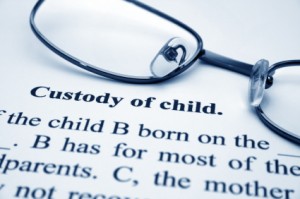In the News: Jason Patric, Sperm Donation, and Fathers’ Rights

Actor Jason Patric is embroiled in a complicated child custody battle in his home state of California that brings to light the issue of sperm donation and fathers’ legal rights. Who’s the daddy in a case where a male partner donates sperm to his girlfriend, but declines to have his name put on the birth certificate?
According to Patric, who recently appeared on the the Katie Couric show to discuss his plight, three years ago he and then girlfriend Danielle Schriebner were struggling to have a baby and decided to undergo infertility treatments. Schriebner eventually conceived via artificial insemination, using Patric’s sperm. In 2010, she gave birth to a son, Gus.
Under current California law, sperm donors are not legally considered the “natural father” of their children unless both parents sign a document prior to conception stating such. This applies to anonymous sperm bank donors and sperm donors participating in in-vitro fertilization and intra-uterine insemination (IUI) with women other than their wives. Patric and Schriebner were not married and, as Patric explains, he declined to sign any paperwork because he concerned for his privacy and the attention this might draw to his child if the matter became public. After Gus’s birth, Patric also declined to be named on the birth certificate.
However, for the first two years of Gus’s life, Patric claims he acted as the boy’s father in all matters. When Patric and Schriebner broke up, she denied him visitation because she claimed he had no legal rights to see the boy. When Patric sued for custody, a California judge agreed with Schriebner and denied Patric any contact. Patric continues to appeal this decision though he has not seen Gus in 21 months.
Inspired by Patric’s struggle, the California state legislature is debating SB 115, a bill that would allow sperm donors to argue for their rights to become legal fathers. SB 115 would allow any sperm donor to go to court and argue that he deserves the rights that come with parentage. To grant parentage, the courts would determine whether a father-child relationship exists.The bill passed the California senate in April and needs to make its way through the California assembly before it can be signed into law.
What would happen if Patric and his girlfriend lived in New Jersey at the time of Gus’s conception? Actually, in New Jersey, sperm donation laws state that when artificial insemination takes place under the supervision of a licensed physician with semen donated from a man who is not the woman’s husband, the husband is treated as the child’s natural father under the law. This is because each party must consent to the procedure in writing which is then validated by the administering physician, according to New Jersey statute N.J.S.A. 9:17-44.
Weinberger Divorce & Family Law Group, LLC issued a press release on the topic of sperm donor rights earlier this year when the issue of paternity arose as the result of a same-sex couple using sperm from an acquaintance, and not going through a clinic. You can find it here: Egg or Sperm Donors for Same-Sex Couples at Risk for Owing Child Support.

